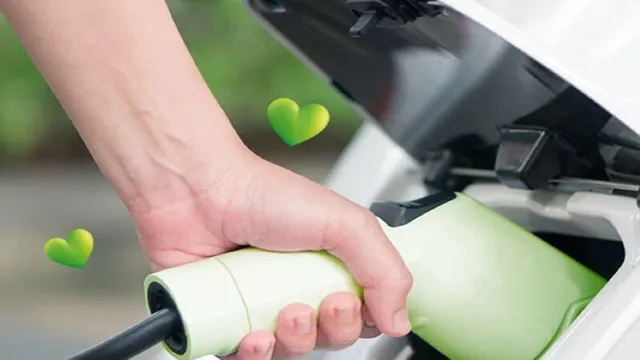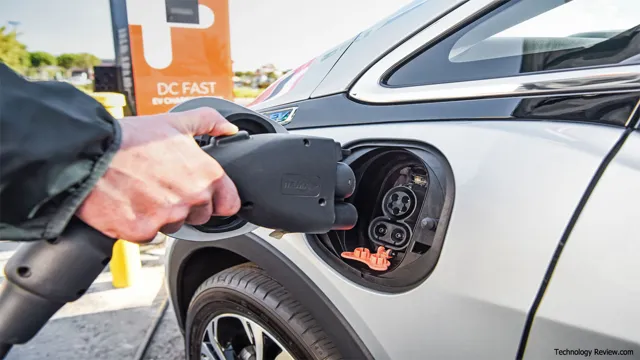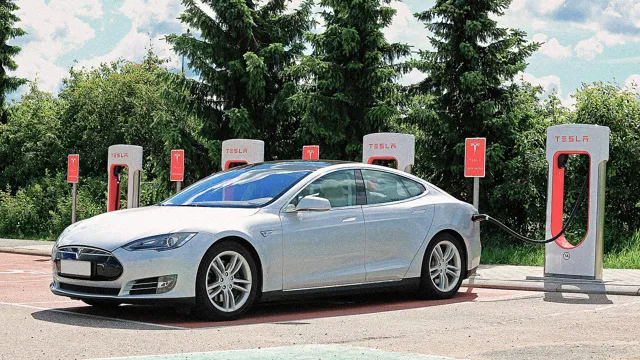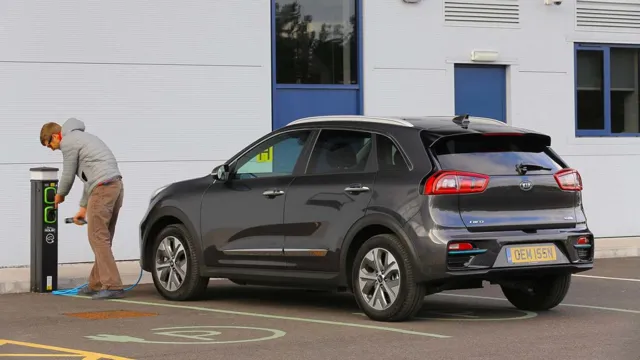Driving the Future: Why Electric Cars are Cheaper to Maintain in the Long Run
Electric cars are becoming increasingly popular in today’s world, with many people transitioning from traditional gasoline-powered vehicles. One of the main reasons for this shift is due to the lower environmental impact of electric cars, but another factor is the potential for reduced maintenance costs. While gasoline cars require regular oil changes, transmission checks, and other costly repairs, electric cars typically have fewer moving parts and require less maintenance.
As a result, those who make the switch to electric vehicles can potentially save money on maintenance costs in the long run. So, are electric cars cheaper to maintain? Let’s explore this topic in more detail.
Initial Cost Comparison
One of the greatest advantages of electric cars is their cheaper maintenance costs compared to traditional gasoline vehicles. The initial cost of purchasing an electric vehicle is generally higher than a gas-powered vehicle. However, electric cars are much cheaper to maintain since they have fewer moving parts and require less frequent maintenance.
Additionally, EVs don’t need oil changes, transmissions, or exhaust systems, all of which can add up to hefty repair bills in the long run. This ultimately leads to significant savings over time, making electric vehicles an increasingly attractive and cost-effective option for those looking to reduce their environmental impact while also saving money. With all these benefits, it’s no wonder that electric cars are becoming increasingly popular among environmentally conscious consumers who want to save money in the long run.
And the best part? You don’t have to sacrifice performance or comfort when driving an electric car. In fact, many electric vehicles offer superior performance compared to some gas-powered vehicles, making them a smart choice for both your wallet and the environment.
Cost of Parts and Labor
When it comes to car repairs, the cost of parts and labor can vary greatly depending on the make and model of the vehicle. For example, a luxury car such as a Mercedes-Benz will typically have higher priced parts and labor than a basic sedan like a Toyota Corolla. This is why it’s important to research and compare costs before settling on a mechanic to perform repairs.
A great way to do this is by getting quotes from multiple mechanics for the same repair job. This way, you can compare the prices and choose the one that fits your budget. It’s also important to consider the quality of the parts being used.
Cheaper parts may save you money initially, but they may not last as long as higher-quality parts, which could end up costing you more in the long run. As with any purchase, it’s important to weigh the initial cost against long-term value.
Cost of Routine Maintenance
When it comes to the cost of routine maintenance, it’s important to take into account the initial cost comparison of different options. For example, you might be considering a cheaper option upfront, but if it requires frequent and costly maintenance, it may end up being more expensive in the long run. On the other hand, investing in a higher-quality and more expensive option may save you money in the long-term as they often require less maintenance and have a longer lifespan.
It’s important to weigh the initial cost against the cost of routine maintenance to make an informed decision and save money in the long-term. So, when deciding on routine maintenance, consider the initial costs and the potential long-term savings to make the best decision for your budget.
Long-Term Savings
Electric cars are undeniably a wise choice for those looking to save money in the long term. Not only are they more environmentally friendly, but they’re also cheaper to maintain than their gas-guzzling counterparts. With fewer moving parts and a simpler design, electric cars require minimal servicing compared to traditional cars.
This can result in significant savings over time, especially with the rising costs of car maintenance. Additionally, electric cars offer a range of financial benefits, such as government incentives and lower fuel costs, that further reduce the overall cost of ownership. While electric cars may have a higher upfront cost, the long-term savings they offer make them a smart investment for anyone looking to save money and protect the environment simultaneously.
Less Frequent Maintenance
When it comes to maintaining a property, frequent repairs can take a considerable toll on your finances, especially if you’re working on a tight budget. But with long-lasting materials that require less maintenance, you can significantly reduce your expenses in the long run. For example, opting for a durable metal roof over a traditional shingle roof can save you money on repairs and replacements in the future.
Similarly, investing in energy-efficient appliances not only cuts down on utility bills but also reduces the need for frequent maintenance. It’s essential to keep in mind that while the upfront costs of these materials may be higher, the long-term savings are worth it. By choosing to use longer-lasting materials, you can get more value out of your investments, reduce your maintenance costs, and enjoy your property without worrying about frequent repairs.
Lower Fuel Costs
When it comes to operating a vehicle or a fleet of vehicles, fuel costs can add up quickly, especially if you’re driving long distances or making frequent trips. However, there is good news: by investing in a vehicle with a better fuel economy, you can save money on fuel costs over the long term. While the initial cost of a more fuel-efficient vehicle may be higher, the savings you’ll generate in fuel costs over time will more than make up for it.
In addition, some alternative fuel options, like electric or hybrid vehicles, can provide even greater savings in the long run. So, whether you’re a business owner looking to lower your fleet’s expenses or a driver trying to save money at the pump, investing in a more fuel-efficient vehicle is a smart choice that can pay off in the long run.
Tax Credits and Incentives
Tax credits and incentives can lead to significant long-term savings for both individuals and businesses. While many people are aware of the tax deductions they can claim on their yearly income tax returns, fewer are familiar with the various tax credits and incentives that are available. For example, the federal government offers tax credits for energy-efficient upgrades made to homes and buildings.
This means that if you install energy-efficient windows or upgrade your heating and cooling systems, you may be eligible for a tax credit that can be worth thousands of dollars. Additionally, many states offer tax incentives for businesses that invest in renewable energy or that create jobs in specific industries. These incentives can result in significant long-term savings for businesses, which can then be reinvested in growth and development.
Overall, it’s important to be aware of the various tax credits and incentives that are available, as they can be a key factor in achieving long-term financial stability and success.
The Bottom Line
It’s no secret that electric cars have become increasingly popular in recent years, and for good reason. Not only are they better for the environment, but they are also cheaper to maintain in the long term. While the initial cost of purchasing an electric car may be more than a traditional gas-powered car, the cost of maintenance is significantly lower.
This is because electric cars have fewer moving parts than traditional cars and therefore require less maintenance. Additionally, the cost of fueling electric cars is much cheaper than traditional cars, as electricity is often less expensive than gas. All these factors make electric cars a great investment for those looking to save money in the long run.
Considerations Before Buying
When it comes to making a big purchase, like a house or a car, there are a lot of considerations that need to be taken into account. The same goes for buying any kind of product, no matter how big or small. In the case of buying something like a phone or a laptop, it’s important to consider all of the features and specifications that are included and how they will affect your user experience.
It’s also important to think about your budget and how much you’re willing to spend. The bottom line is that you want to make sure you’re getting the best value for your money and that the product you choose is going to meet all of your needs. Whether you’re looking for a high-end device with all the latest features or something more budget-friendly, there are plenty of options available that will fit your needs.
So before making any kind of purchase, take the time to do your research and make sure you’re getting the best bang for your buck.
Overall Cost Comparison
The bottom line when it comes to comparing the overall costs of different options is that it really depends on your specific needs and circumstances. While some options may appear more expensive upfront, they may actually save you money in the long run due to factors such as reliability, efficiency, and durability. On the other hand, cheaper options may end up costing you more in repairs, replacements, and maintenance.
It’s important to not just look at the initial cost, but also consider factors such as energy efficiency, lifespan, and warranties. In the end, the best option is one that fits within your budget while also providing the necessary features and benefits that match your needs. So, don’t just focus on the price tag, but also consider the value that comes with your investment.
Final Thoughts
In conclusion, electric cars are cheaper to maintain compared to traditional gasoline-powered cars. This is due to the fact that electric cars have fewer moving parts and less wear and tear on the parts that do move. In addition, the cost of electricity is lower than the cost of gasoline, resulting in lower fuel costs.
While the upfront cost of an electric car may be higher than a traditional car, it is important to consider the long-term savings on maintenance and fuel costs. Plus, electric cars are better for the environment, producing zero emissions and reducing our carbon footprint. Overall, switching to an electric car can be a smart financial decision and a step towards a greener future.
Conclusion
In conclusion, electric cars prove to be the financially responsible choice not just in terms of fuel efficiency, but when it comes to maintenance costs too. With fewer moving parts, lower wear and tear, and the absence of expensive oil changes and engine tune-ups, electric vehicles offer significantly cheaper maintenance costs over their lifetime. So if you want to save money, help the environment, and enjoy the thrill of a high-tech driving experience, it’s time to electrify your ride!”
FAQs
How do electric cars compare to gas cars in terms of maintenance costs?
Electric cars are generally cheaper to maintain than gas cars due to their simpler mechanics and fewer moving parts. They also don’t require oil changes or tune-ups, which can save owners money over time.
What are some common maintenance tasks for electric cars?
While electric cars do require some maintenance, it’s typically less frequent and less costly than for gas cars. Common tasks include inspecting the battery, brakes, and tires, as well as replacing the cabin air filter and checking the coolant levels.
Are there any downsides to owning an electric car when it comes to maintenance?
One potential downside of owning an electric car is that repairs and replacements for some parts, such as the battery, can be expensive. Additionally, qualified mechanics may be harder to find for electric cars, especially in areas where they are less common.
What can owners do to minimize maintenance costs for their electric car?
To minimize maintenance costs, owners can take good care of their electric car’s battery by avoiding extreme temperatures and maintaining proper charging habits. They can also stay up to date on routine maintenance tasks and choose a qualified and reputable mechanic for any repairs that are needed.






